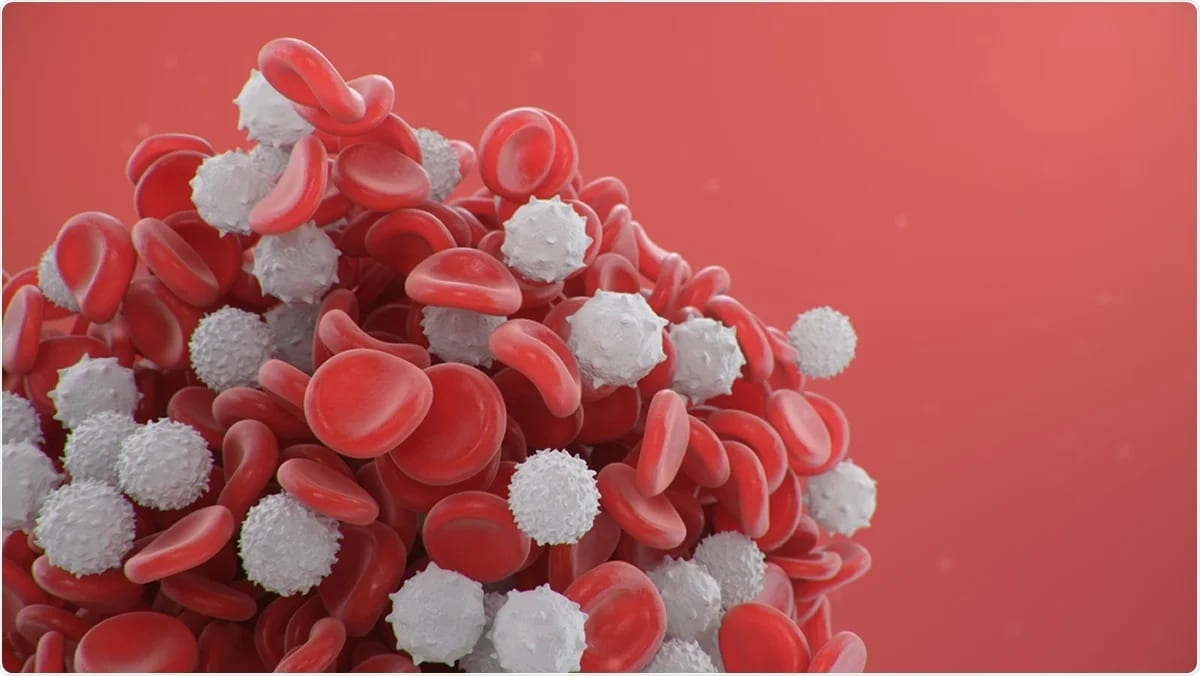How to Increase White Blood Cell Count

Phasellus cursus orci pulvinar proin nulla vitae. Arcu faucibus vestibulum fames eget nunc. Ut in sed platea egestas amet purus nibh suspendisse semper. Iaculis sit quam magna congue. Amet vel non aliquet habitasse.
How to Increase White Blood Cell Count
Maintaining a healthy immune system is crucial for our overall well-being, and white blood cells (WBCs) play a pivotal role in our body’s defense against harmful pathogens. In this article, we will delve into the fascinating world of white blood cells and explore effective and natural ways to increase your WBC count. So let’s dive in!
What is White Blood Cell (WBC) Count?
White blood cell count refers to the number of white blood cells present in a sample of blood. These invaluable cells form an integral part of our immune system and act as the first line of defense against infections, bacteria, viruses, and other foreign invaders. Monitoring your WBC count is essential as it provides valuable insights into your immune health and helps identify potential underlying conditions.
Types of White Blood Cells
There are several types of white blood cells, each with its unique role in protecting our body. Understanding these distinct cell types can help us comprehend the significance of maintaining an adequate WBC count. Here are the main types of white blood cells:
Neutrophils
Neutrophils are the most abundant white blood cells found in our body. They swiftly rush to the site of infection, engulf and destroy harmful bacteria, preventing further damage.
Lymphocytes
Lymphocytes are responsible for mounting immune responses against viruses and attacking cancer cells. They produce antibodies to neutralize pathogens and remember them for future encounters, providing long-lasting immunity.
Monocytes
Monocytes act as scavengers, patrolling our body to detect and engulf foreign substances, dead cells, and debris. Once they enter tissues, they transform into macrophages, promoting tissue repair and healing.
Eosinophils
Eosinophils primarily combat parasitic infections and regulate allergic responses in our body. These specialized white blood cells release toxins that target and destroy parasites, safeguarding our overall well-being.
Basophils
Basophils play a vital role in triggering allergic reactions and helping in the detection of parasitic infections. Although they are less numerous than other white blood cell types, they secrete essential chemicals, such as histamine, involved in the body’s immune responses.
What Causes Low White Blood Cell Count?
A low white blood cell count, medically known as leukopenia, can stem from various factors. Understanding the potential causes is crucial to determine the most suitable approach for increasing your WBC count. Here are some common culprits responsible for a low white blood cell count:
Viral infections: Certain viral infections, like HIV/AIDS, can impair the production and function of white blood cells, leading to a diminished WBC count.
Bone marrow disorders: Conditions such as aplastic anemia, leukemia, and myelodysplastic syndromes can disrupt the normal production of white blood cells, resulting in reduced WBC count.
Autoimmune diseases: Autoimmune diseases, including lupus and rheumatoid arthritis, can potentially cause leukopenia by harming the bone marrow or accelerating the destruction of white blood cells.
Medications and treatments: Some medications, including chemotherapy drugs, can have a suppressing effect on bone marrow, lowering white blood cell production. Radiation therapy can also have a similar impact.
Nutritional deficiencies: Inadequate intake of nutrients like vitamin B12, folate, and copper can hinder the production and functioning of white blood cells, leading to a decreased WBC count.
How to Increase WBC Count Naturally
Boosting your white blood cell count naturally is achievable with a few lifestyle modifications and dietary adjustments. Here are some effective strategies to enhance your WBC count:
Maintain a balanced diet: Ensuring a well-rounded and nutrient-rich diet is crucial for optimal immune function. Include foods high in vitamins C, E, A, zinc, and selenium, such as citrus fruits, leafy greens, nuts, seeds, and lean proteins. These nutrients provide the building blocks necessary for white blood cell production.
Stay hydrated: Drinking an adequate amount of water helps in transporting nutrients throughout your body and supports the efficient functioning of your immune system. Aim for at least eight glasses of water per day.
Get sufficient sleep: Prioritize quality sleep as it allows your body to recharge and rejuvenate. While you sleep, your immune system actively works to repair and strengthen itself, ultimately enhancing your WBC count.
Reduce stress levels: Chronic stress can impair the immune system, making you more susceptible to infections and reducing your WBC count. Engage in stress-reducing activities like meditation, yoga, or indulging in hobbies to promote a healthier immune system.
Regular exercise: Engaging in moderate exercise regularly not only strengthens your cardiovascular system but also boosts your immune response. Exercise enhances blood circulation, allowing white blood cells to reach potential infection sites efficiently.
Quit smoking: Smoking damages the immune system and hampers the production and function of white blood cells. Quitting smoking can significantly improve your WBC count and overall immune health.
Conclusion
Maintaining a healthy white blood cell count is essential for a robust immune system and overall wellness. By understanding the different types of white blood cells, the causes of low WBC count, and adopting natural strategies to increase it, you’re taking a proactive step towards safeguarding your immune health. Remember, a wholesome lifestyle, balanced nutrition, and adequate self-care are key elements in supporting your body’s defense mechanisms and optimizing your white blood cell count. Stay healthy, stay protected!
Also Read: The Incredible Health Benefits of Eating 2 Cloves Daily
Elementum ut quam tincidunt egestas vitae elit, hendrerit. Ullamcorper nulla amet lobortis elit, nibh condimentum enim. Aliquam felis nisl tellus sodales lectus dictum tristique proin vitae. Odio fermentum viverra tortor quis reprehenderit in voluptate velit.
Daniel Adams
5 November 2021